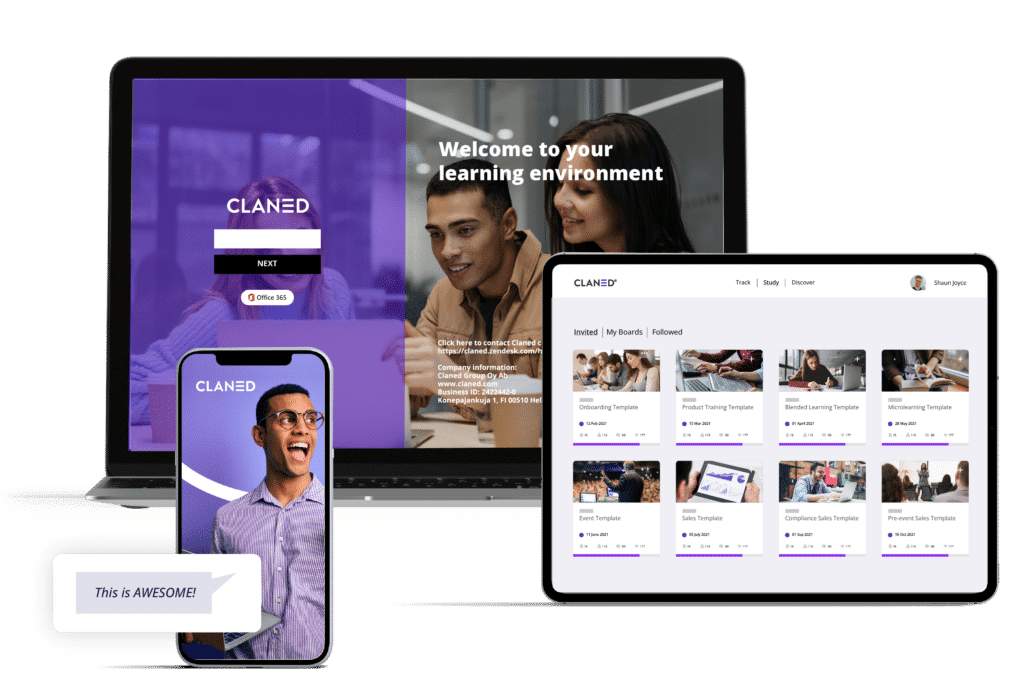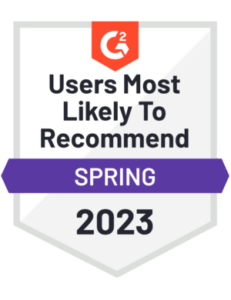One of the biggest challenges in online learning is, How to motivate learners in an online learning environment. And it’s a major challenge, because, without motivation, learning suffers, the probability of success decreases, and dropouts increase. But how do you motivate learners in an online learning environment? How do you maximise learning in eLearning? In this post, we’ll look at these questions, and more, in more detail.
The problem is that learning in a classroom setting differs significantly from learning in an online learning environment. So, in simple terms, what works in a classroom might not necessarily work online. As a result, it requires a different approach to teaching.
Why Motivation Is Crucial in Online Learning?
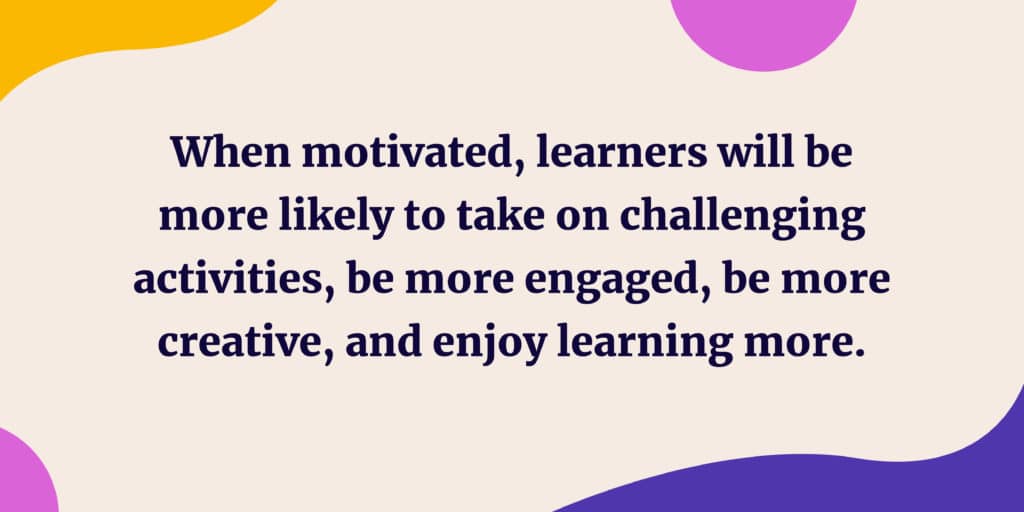
Before looking at how to increase motivation in an online learning environment, let’s look at why motivation is so important. At its core, motivation influences what learners learn, how they learn, and when they choose to learn. When motivated, learners will more likely take on challenging activities, be more engaged, creative, and enjoy learning more. The problem is that online learning environments differ markedly from their in-person counterparts. Which can sometimes lead to a higher dropout rate compared to similar in-person courses.
Now, this could be for a variety of reasons including frustrations with technology, feeling isolated, or challenges in time management due to other responsibilities. In addition, because online and self-directed learning places an increased emphasis on learners autonomy and independence, online learners need to be more intrinsically motivated compared to in-person learners. Ultimately, motivation is a crucial factor for success in an online learning environment. and it’s important to implement the necessary strategies to increase learner motivation and the chances of success.
Strategies To Increase Motivate Learners in an Online Learning Environment
Now that we’ve seen why motivation is important, it’s time to look at some strategies you can use to increase motivation in an online learning environment. These strategies not only have the ability to make online learning more engaging but will also maximise learning and improve learning outcomes.
Proper Planning
Consider an in-person class for a moment. Here, there are quite a few activities learners can do and, as a result, it gives teachers a fair amount of improvisation when it comes to getting their message across. Conversely, in an online learning environment, the options are comparatively limited. For this reason, it’s crucial to plan properly in advance to keep learners engaged and ensure they learn effectively. But it goes further than this, though. Apart from educational planning, technical planning which involves using the right technologies to deliver a lesson and making the course materials accessible is also crucial.
Ultimately, with proper planning, both instructors and learners will be more productive and learning more effective.
Set Goals

As with many other things in life, goal setting is a vital ingredient to ensure success in an online learning environment. It’s simple, when learners have reachable goals, they know what to learn to achieve them.
In a group setting, goals give learners reasonable expectations and a structure for the course. So, these goals might be that the class would complete a certain number of activities within a determined period and that it would be assessed at certain intervals to gauge understanding of the materials covered.
Moving on from a group setting, it’s also invaluable to help learners set achievable personal goals. This, in turn, gives them a benchmark to see how they progress and measure their level of comprehension of the course materials. These goals can be anything from completing a certain number of assignments or modules in a period or achieving a certain grade in an assessment.
Irrespective of whether it’s group goals or goals on an individual level, they give learners a clear objective and a reason to engage with the learning process which, in turn, increases their motivation.
Give Learners Choice
A vital part of the self-directed learning process is that learners have autonomy. So, unlike a typical classroom setting where learners are directed by a teacher, in an online learning environment, you’ll reach greater success if you allow learners to take control of their learning process.
So, while individual goal setting is a good way to allow learners to do this, giving them more learning choices during their learning path is also effective. In this way, they manage their own learning and planning according to their skills, background knowledge, and abilities. Here, a perfect example would be by giving learners a calendar of assignments and the materials that will be covered, so that they can plan their work throughout the course.
Giving learners more choice can also involve giving them the option to choose how they’ll demonstrate their proficiency and how they’ll apply the skills they’ve learned. This allows them to take ownership of the process and makes them more motivated.
Reward Success
It’s crucial to reward learners for successes throughout their learning journey. There are several ways to do this. For instance, one way is to show learners exceptional work done by one of their peers. By doing this, you not only reward those learners whose work you use as an example but also give other learners something to aspire to. Indirectly, you then increase the motivation for those learners who want to do better.
Another way is to reward learners when they complete assignments or tasks on time. This encourages them to complete work earlier but also leaves some flexibility in the process.
The key takeaway is that rewarding success helps learners develop self-esteem and self-confidence which then motivates them to complete tasks and move through the course.
Give Timely and Meaningful Feedback
In a self-regulated learning environment, timely and meaningful feedback is vital to streamline the process and keep learners on track. Unlike a traditional classroom setting where the instructors have ample opportunities to give feedback, in online learning you need to make extra effort to plan for feedback.
Fortunately, this isn’t too hard and there are several ways in which you can provide feedback online. These include everything from verbal feedback through recordings, video feedback with captions, or videoconferencing where important aspects of a course can be discussed.
There are certain challenges to these approaches. For example, video and audio feedback allows you to explain concepts better while videoconferencing allows you to give in-depth feedback to individual learners privately. Most of all is that, unlike a classroom setting, you’ll have more time to compose meaningful and detailed feedback.
As a result, learners will know exactly what they need to do to improve which motivates them to do so.
Stay Connected
A major challenge in an online learning environment is the lack of interaction. Which can often lead to learners feeling isolated. In turn, this leads to motivation decreasing over time. To overcome this challenge, it’s necessary to stay connected with learners and create community in the online learning environment. You could implement a number of strategies from online group activities to encouraging interaction inside the content. Claned’s online platform encourages students to comment and highlight within the materials for more discussion. As an instructor you could leave comments within a video to kick off those discussions.
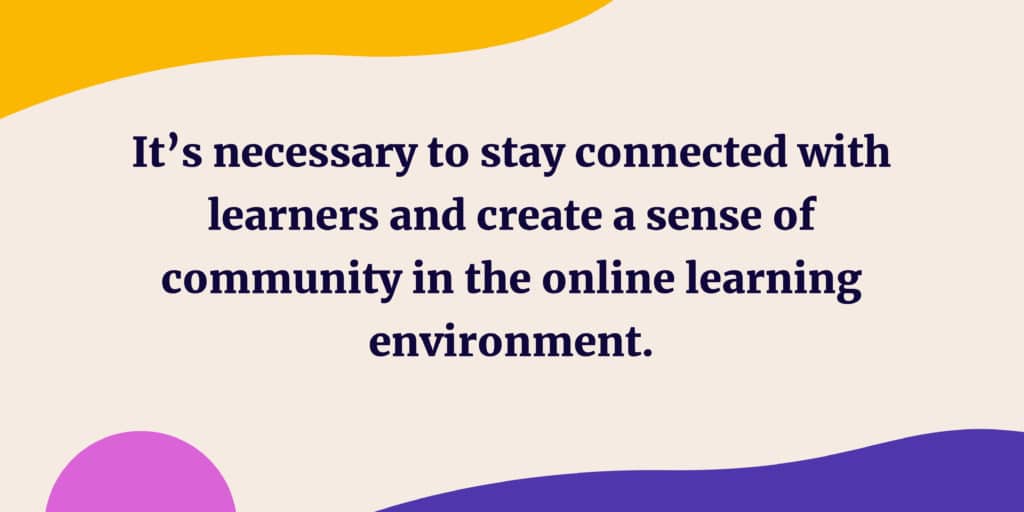
Ultimately, connecting with teachers and fellow learners will give learners the interaction they need to reduce feelings of isolation. In turn, this will increase their motivation to engage with the learning process.
Make It Open and Accessible
One major advantage of online learning is the abundance of educational materials on the internet. The problem is, however, that learners could struggle to find the information they need. As a result, they become demotivated. So, the ideal way to keep motivation up is to encourage peer learning and support. Give them access to share materials, videos and notes inside the learning platform with other learners.
In this way, you enable two-way communication, stay connected to learners, and make them part of the class. Keep in mind, though, that giving this guidance might not always be enough. So, you should also be available to learners to answer any questions or address any issues they might have. Here, it could be extremely helpful to create virtual office hours when you’ll be available to do this. You could even consider making it possible for learners to approach you through text with any challenges they face.
Use Variety and Novel Content
Using the same methods and content to teach can easily lead to boredom. And boredom is probably one of the biggest motivation killers when it comes to online courses, not even to speak of lifelong learning. So, it makes sense to change these regularly to keep learners motivated and engaged. Apart from keeping learners motivated, this approach has several other benefits.
For one, giving learners new content and ways to learn actually builds new neural pathways that help them become better at solving problems, learn more, and stay engaged. In turn, this keeps them motivated and sets them up for success.
The Bottom Line
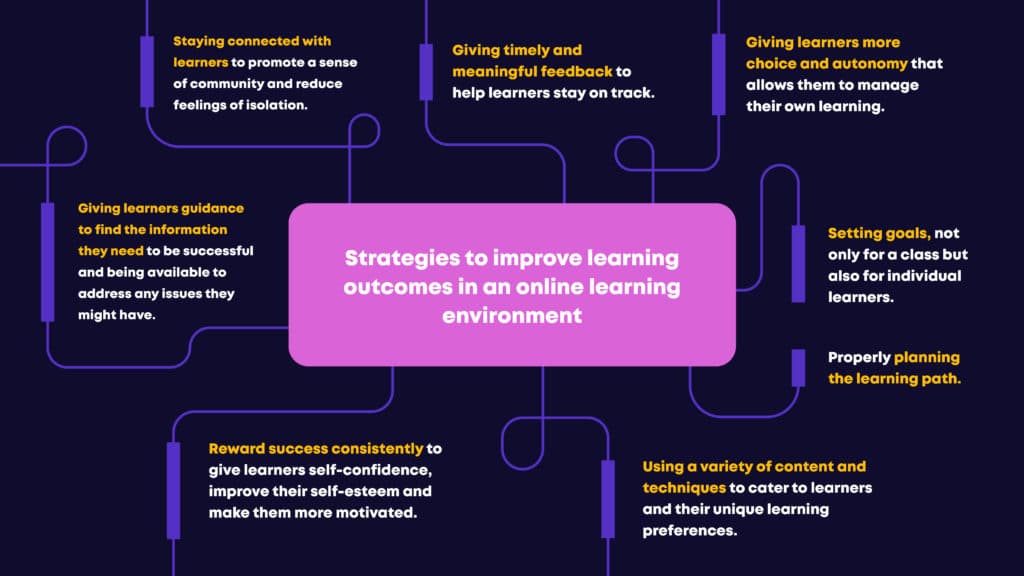
In a world where online learning is becoming increasingly popular, it’s crucial to keep learners motivated. To do this, it’s necessary to implement strategies that equip them with the right tools, time management skills, and solutions to combat isolation. Ultimately, this keeps them engaged in the learning process which, in turn, reduces the loss of motivation.
Hopefully, this post helped illustrate some of these strategies in more detail. To learn more about Claned and how it can help you improve your performance with digital learning, schedule a demo.


